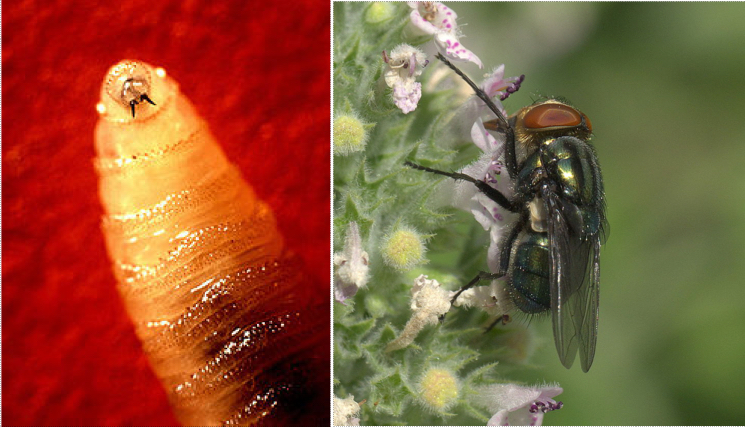New World Screwworm Information for Boaters
The U.S. Department of Agriculture confirmed the presence of New World screwworms in Monroe County on October 3, 2016. Florida’s endangered Key deer population on Big Pine and No Name keys have already suffered losses due to this infestation. A few pets in the local area exhibited potentially similar infestations over the past two months, though no larvae were collected and tested in those cases. Rapid and thorough response efforts are imperative to save this endangered species and prevent the spread to people and other animals. Liveaboard boaters and boaters visiting the Keys with their pets are encouraged to observe their animals for any open wounds and signs of discomfort.
The Florida Department of Agriculture and Consumer Services, in partnership with the U.S. Department of Agriculture, is working aggressively to prevent the spread of screwworm and eradicate this invasive pest. Efforts include surveillance, inspection, trapping, control methods, treatment and public outreach.
What you can do:
- Know the signs
- Check your animals
- Report suspect cases
What to look for and how to report:
- Screwworms are maggots that can infest livestock and other warm-blooded animals, including people. They most often enter an animal through an open wound and feed on the animal’s living flesh. If detected early, animals and people can be treated and fully recover.
- Using fly repellents and keeping skin wounds clean and protected from flies can help prevent infection with screwworm in both people and animals.
- Observe your pet for signs of screwworm. Screwworm infestations are difficult to detect at first. Check your pets for draining or enlarging wounds, and signs of discomfort.
- Also look for screwworm larvae or eggs. Screwworm eggs are creamy and white and are deposited on or near the edges of superficial wounds.
- If you suspect your pet is infected with screwworm, contact your veterinarian. To report a suspected case of screwworm in animals call 1-800-HELP-FLA (1-800-435-7352). Non-Florida residents can call 1-850-410-3800.
- While not common in humans, if you notice a suspicious lesion on your body or suspect you may have contracted screwworms, seek immediate medical attention.
- For information on the New World screwworm, including how to take precautions for yourself and your pets, please visit www.FreshFromFlorida.com/Screwworm.



Facebook Comments